UKIP conference: What to expect
- Published
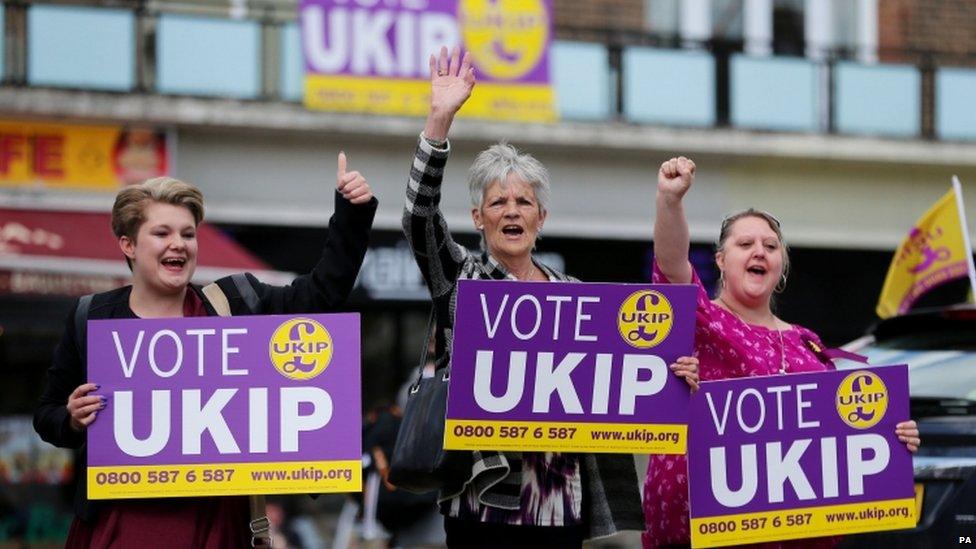
UKIP are gathering in Doncaster for their annual conference. It is their first meeting since the disappointment of the general election, when hopes that the party would make a major breakthrough in Westminster were dashed.
Looking forwards, not backwards
The post-mortem on May's general election performance takes place on Thursday, on what is being officially billed as an internal "training day" and before most of the national media have arrived.
This is perhaps no coincidence, with feelings still running high in the party at its failure to convert its spectacular performance at the ballot box - it won more than four million votes, amounting to 12% of the total vote share - into more seats.
But while it may only have one representative in the Commons, UKIP has always had other ways of making its influence felt and the forthcoming EU referendum - in which it believes it can play a decisive role - will be uppermost in everyone's minds.
Sessions on Friday and Saturday - with titles such as 'Europe in crisis', 'Out of the EU, into the world' and the 'Brexit bonus' - will focus on the current difficulties facing the European and the opportunities open to the UK if it votes to leave.
The unashamed focus on Europe reflects UKIP's belief that David Cameron intends to call an early vote on the issue - possibly in less than a year's time - and the party needs to mobilise itself now.

European fraternity
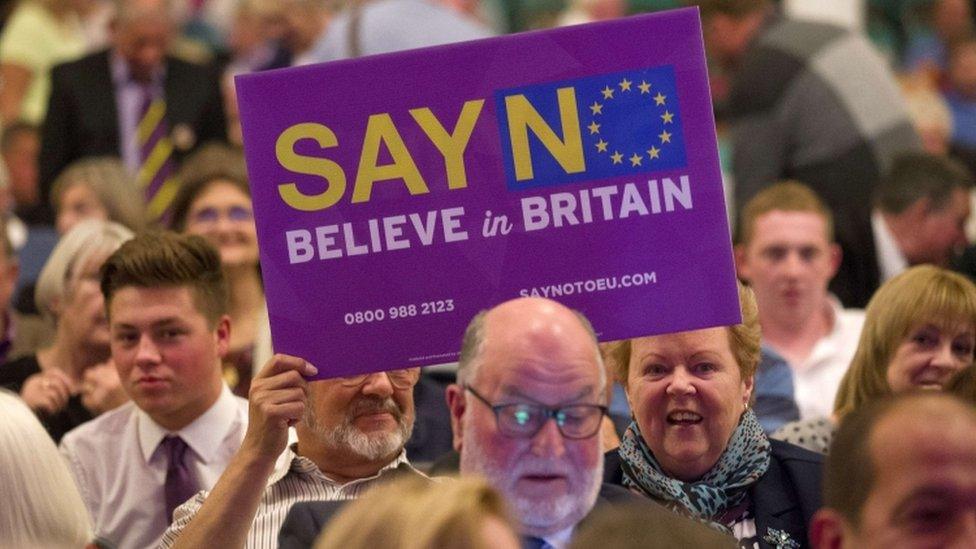
UKIP knows the party needs to build bridges across parties and with other like-minded groups if it is to persuade the British public to back leaving the EU.
Although Nigel Farage has ruled out heading the official "Out" campaign, the party was criticised in some quarters for launching its own campaign last month, amid concerns that the anti-EU side was already fragmenting.
In a response to that, there will be a show of eurosceptic solidarity with representatives from the The Know.EU - which was set up by UKIP donor Arron Banks, and which is being rebranded Leave.eu - Better Off Out and the Freedom Association sharing a stage with senior UKIP politicians. Representatives from the For Britain Campaign will attend the conference.
There will also be a determined effort to show that the vision of a Europe without the European Union is not confined to the UK. Guest speakers will include Helle Hagenau, a leading player in Norway's 'No to EU' group and Joram van Klaveren, an MP for Dutch party Voor Nederland, one of UKIP's allies in the European Parliament.

Farage's authority
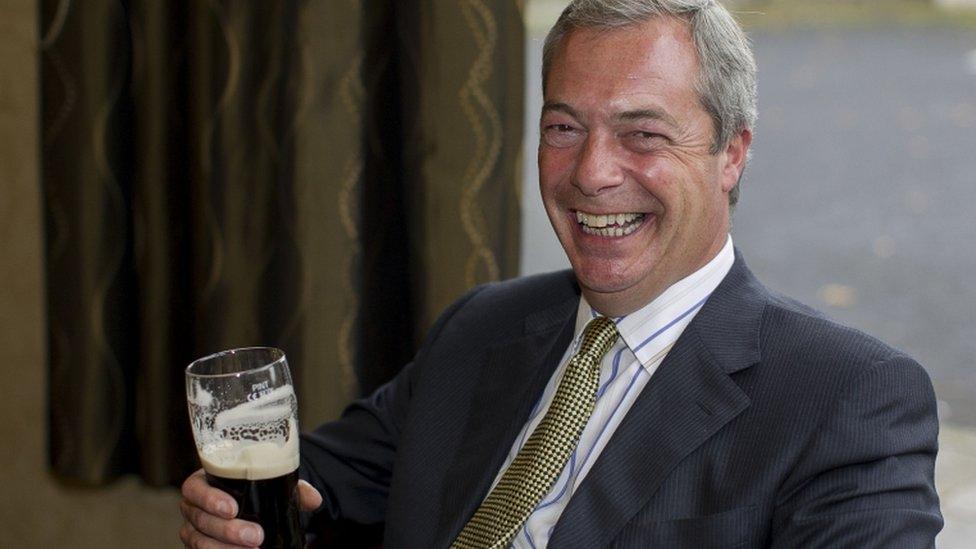
As always at a UKIP conference, Nigel Farage will be the star attraction, his speech scheduled for the prime pre-lunchtime slot on Friday.
However, if things had turned out slightly differently, this conference could have been the first of the post-Farage era.
Mr Farage's pledge to quit if he failed to win a Westminster seat and his backtracking on this days after he lost in Thanet North - after the party's national executive rejected his resignation - caused the most serious internal ructions in the party for years.
Key figures, such as former economic spokesman Patrick O'Flynn, left their posts in the aftermath of the infighting and UKIP leader's long-honed reputation for plain speaking and plain dealing was dealt a serious blow.
While he has reasserted his grip over the party, and has the support of key figures, Mr Farage is no longer the most high-profile insurgent in British politics - Jeremy Corbyn has assumed that mantle in recent weeks - and has his work cut out to seize back the political agenda which the party dominated for much of 2014.

Electoral reform - a new cause
Europe and immigration have been UKIP's principal preoccupations for many years but the party now has a new cause - electoral reform. In one sense, this is not a surprise given its meagre return of one seat in May in return for its nearly four million voters.
Yet its conversion to the cause is not sour grapes but the culmination of a steady alienation with the current first-past-the-post system.
Nigel Farage flirted with backing AV plus in a 2011 referendum on the electoral system and the party's energy on the issue has gone up several notches since Douglas Carswell - the former Conservative MP and champion of political reform and direct democracy - joined the party in the summer of 2014.
The party is looking to make common cause with other campaigners on the issue, inviting Katie Ghose, the head of the Electoral Reform Society and Eddie Bone, who heads the Campaign for an English Parliament group to speak at the event.

A UK-wide party?
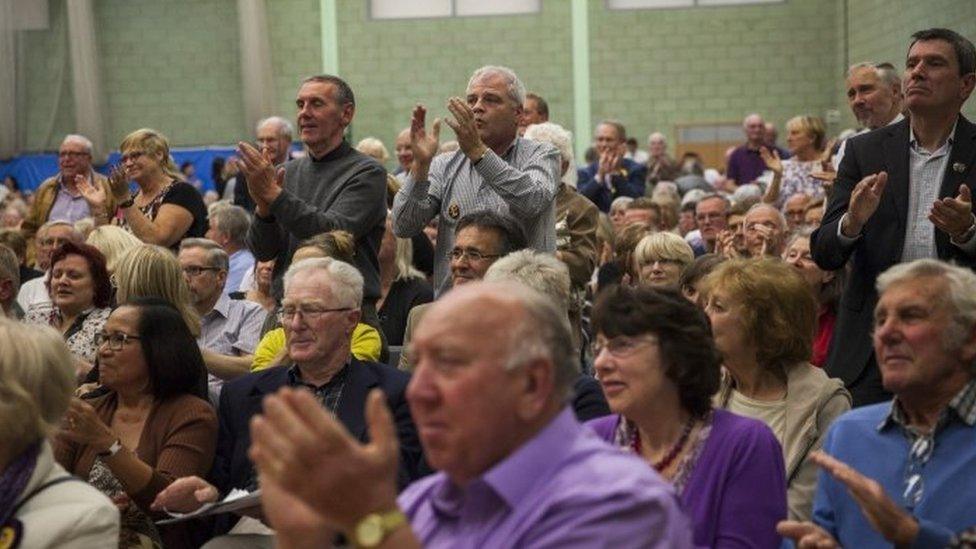
UKIP has become a force to be reckoned with in Westminster by-elections, is increasing its representation at a local level in England and has designs on a host of Labour seats in the north of England where it finished second in May.
But there is still a long way to go before the party can consider itself a genuinely UK-wide political force.
Next year, it hopes to change all that by winning its first seats in the Scottish Parliament and the National Assembly of Wales. There is also the small matter of the London mayoral election, with the party's candidate being announced on Saturday.
The contest pits the party's former deputy chair and most prominent female face Suzanne Evans against culture spokesman Peter Whittle - the party's leading gay politician - and three other candidates.
London has not been fertile ground for the party - Lawrence Webb won less than 2% of the vote in the last mayoral contest - and whoever wins knows that they will be the standard bearer for the party in a contest that will have national ramifications.

All bets are off
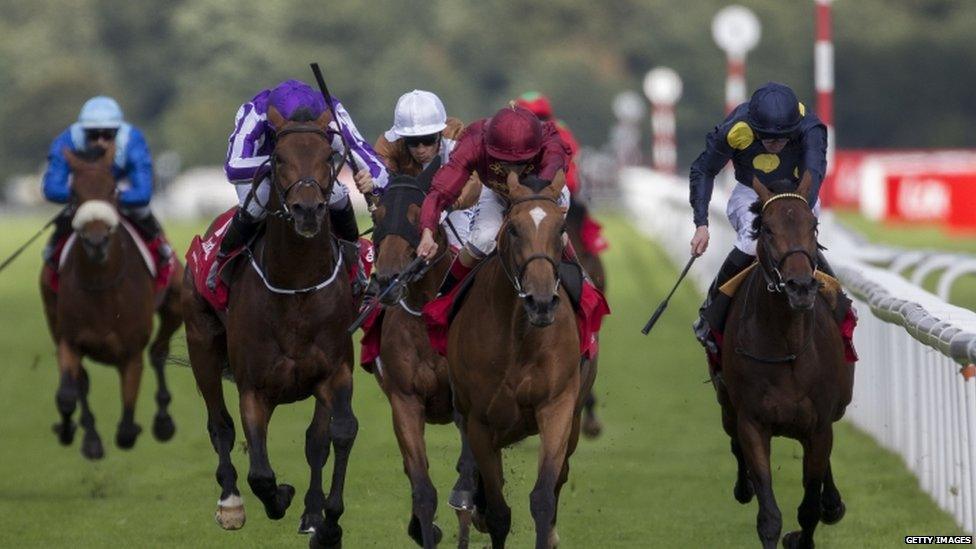
UKIP are the only party to hold a party conference at a racecourse and Town Moor provides a striking contrast with the typical seaside and city centre venues favoured by the other parties.
More than 30,000 people attended the St Leger, Doncaster's most famous race, earlier this month - and while there will be only a fraction of that present this time, UKIP - which has 47,000 members - say the conference will be their biggest to date.
Although there will be no equine sport actually taking place, expect plenty of journalistic metaphors about whether UKIP can stay the distance and whether they are in sight of the winning post as the EU referendum looms.

Viewing guide to the UKIP conference
Friday 25th September
9.45 - opening ceremony, followed by speeches on Europe and the migrant crisis
11.30 - speech on "threat" from Transatlantic Trade and Investment Partnership
12.00 - keynote speech from party leader, Nigel Farage
14.00 - Mark Reckless, former UKIP MP, speech on the economy
16.15 - debate on the EU referendum campaign
Saturday 26th September
10.00 - electoral reform with speech from UKIP's only MP Douglas Carswell
11.35 - strategy for next year's elections to the Scottish Parliament, Welsh Assembly and local councils
12.45 - tributes to the Queen
14.00 - debate titled "The Brexit bonus"
17:45 - closing speech and anthems
You can follow it all live on BBC Parliament
